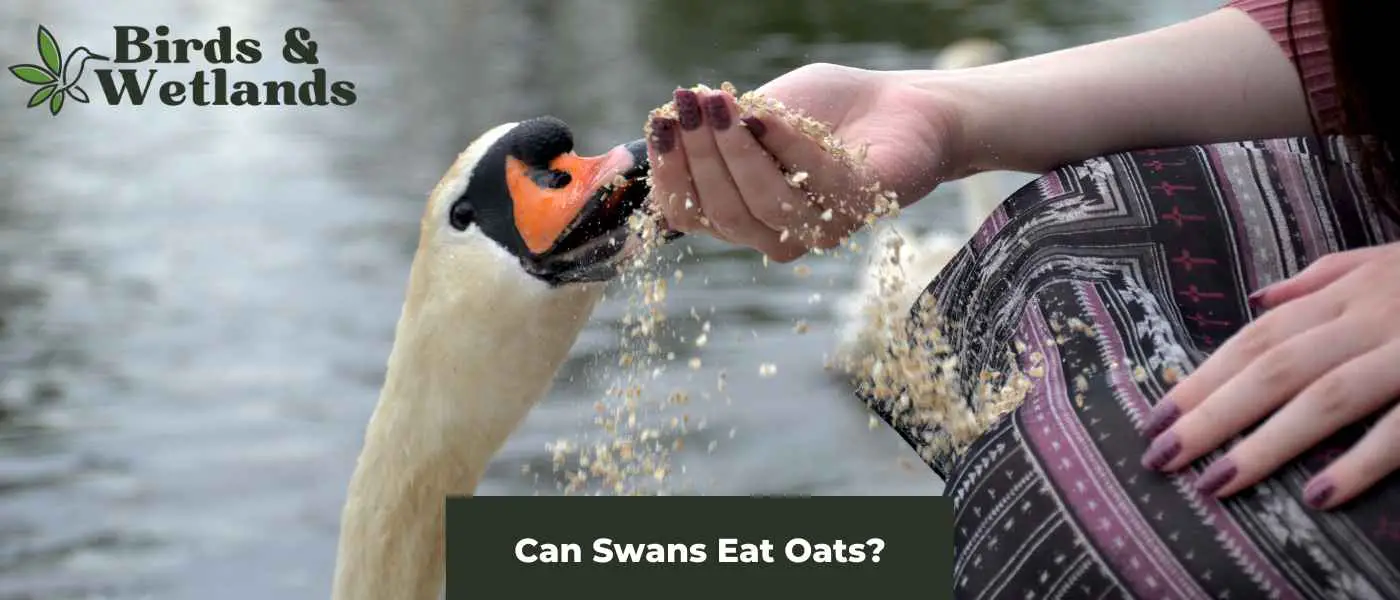Swans are known for their grace and beauty, but did you know that these majestic birds are also omnivores? This means that their diet is diverse and includes a variety of plant and animal matter.
But can oats be part of a swan’s diet?
Swans can eat oats as a supplementary food source, as they provide essential nutrients such as carbohydrates, proteins, and fiber. Oats can be a healthy option for swans compared to other human foods like bread, which lacks nutritional value. When offering oats to swans, choose plain, uncooked oats without any added sugar, salt, or flavorings.
Key Takeaways on Feeding Swans Oats
- Nutritious alternative: Feeding swans oats is a healthy and nutritious alternative to bread, which is commonly given to them but lacks essential nutrients and can be harmful to their health.
- Uncooked and rolled oats: When feeding swans oats, it is best to provide uncooked and rolled oats, as these are easier for the birds to digest and offer better nutritional value compared to processed or flavored oats.
- Portion control: It is essential to avoid overfeeding swans, as this can lead to health issues and dependency on humans. Offer small amounts of oats and monitor their consumption to ensure a balanced diet.
- Supplement with greens: In addition to oats, swans can benefit from a diet that includes leafy greens, such as lettuce, spinach, or kale. These provide essential vitamins and minerals and help maintain overall health.
What do swans typically eat?
Swans have a diverse diet that includes aquatic plants and small animals. Even though these birds are omnivores, they get most of their nutrition from plant material, such as grasses found along the banks of rivers and ponds. They supplement their diets with animals such as small fish, snails, clams, invertebrates and worms, especially during the winter months.
Most people feed swans foods that are considered unhealthy. The importance of diversity in a swan’s diet cannot be overstated, as it ensures they get the necessary nutrients they need to thrive.
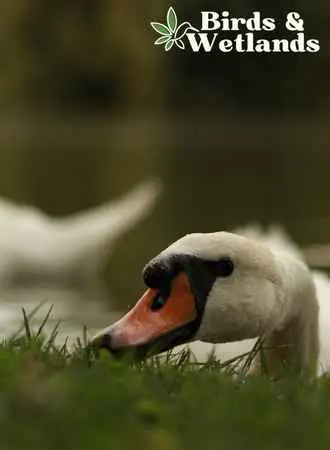
Can you feed swans oats?
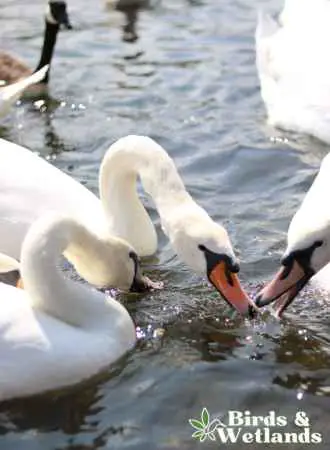
Oats are a popular food item for many animals, but can they be part of a swan’s diet? The answer is yes, swans can eat oats, but they should not be the sole component of their diet.
Oats are a good source of carbohydrates and provide energy, but they are low in protein, which is essential for the growth and maintenance of muscle mass.
Additionally, oats can be difficult for swans to digest if they are not properly prepared and can cause intestinal blockages if fed in excess.
Instead of feeding bread, swans can get more nutrition from oats and other foods.
Can baby ducks eat oats?
Yes, baby ducks can eat oats in small quantities. However, they should eat more food that is part of their natural diet. Oats are a great supplement to duck starter pellets, small insects and vegetable matter.
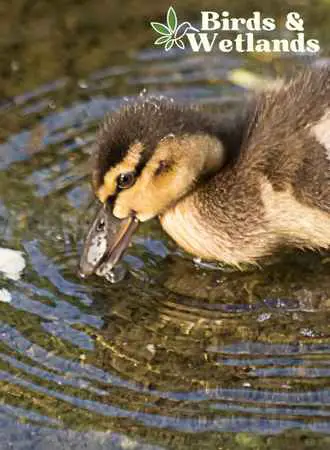
How to serve oats to swans
- If you decide to feed oats to swans, it’s important to do so responsibly.
- To prepare oats for swans and other birds, it’s best to grind or roll them into small pieces to make them easier to digest.
- Oats should be soaked for a few hours or overnight before feeding to aid digestion further.
- It’s also important to pair oats with other food items, such as brown rice, frozen peas, green beans, duck food, grain such as wheat, aquatic vegetation and cracked corn.
- Swans should not be fed large quantities of oats because it could lead to health problems for the bird.
- Don’t feed bread to the hungry bird. Bread is utterly unsuitable for these animals. Instead, feed them oats mixed with leafy greens and other vegetables, especially lettuce.
- Chickens, geese, ducks and swans share the same food. Mix oats with duck feed or chicken feed and feed them to swans. Watch as the nuggets float in the water, giving most swans more time to eat.
- Remove any uneaten food to avoid attracting rodents and other pests.
Other Foods for Swans
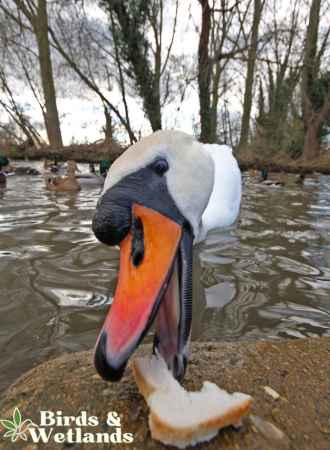
Best Waterfowl Feed
Delightful Feeding Experience
Transform your backyard into a scenic waterfowl habitat and enjoy an interactive feeding experience with Natural Waterscapes Waterfowl Floating Food.

Pros
- Nutritious Food: Natural Waterscapes Waterfowl Floating Food is specifically designed to provide essential nutrients to waterfowl, including swans, geese, and ducks, helping them maintain a healthy diet.
- Convenient: The food comes in resealable packaging, making it easy to store and use as needed. It is also easy to handle and transport.
- Floating Formula: The floating formula of the food allows it to remain on the surface of the water, making it easier for waterfowl to eat and minimizing the risk of water contamination.
- Attracts Waterfowl: The food is formulated to attract various waterfowl species, including swans, geese, and ducks, to your pond, lake, or other water body, providing an opportunity to observe and enjoy these beautiful creatures.
- Environmentally Friendly: Natural Waterscapes Waterfowl Floating Food is made with environmentally friendly ingredients and does not contain any harmful preservatives, making it safe for both waterfowl and the environment.
Cons
- Shelf Life: The food’s shelf life may be limited compared to other types of waterfowl food due to its natural ingredients and lack of preservatives. This means you may need to use it up quickly after opening the package to prevent it from going bad.

